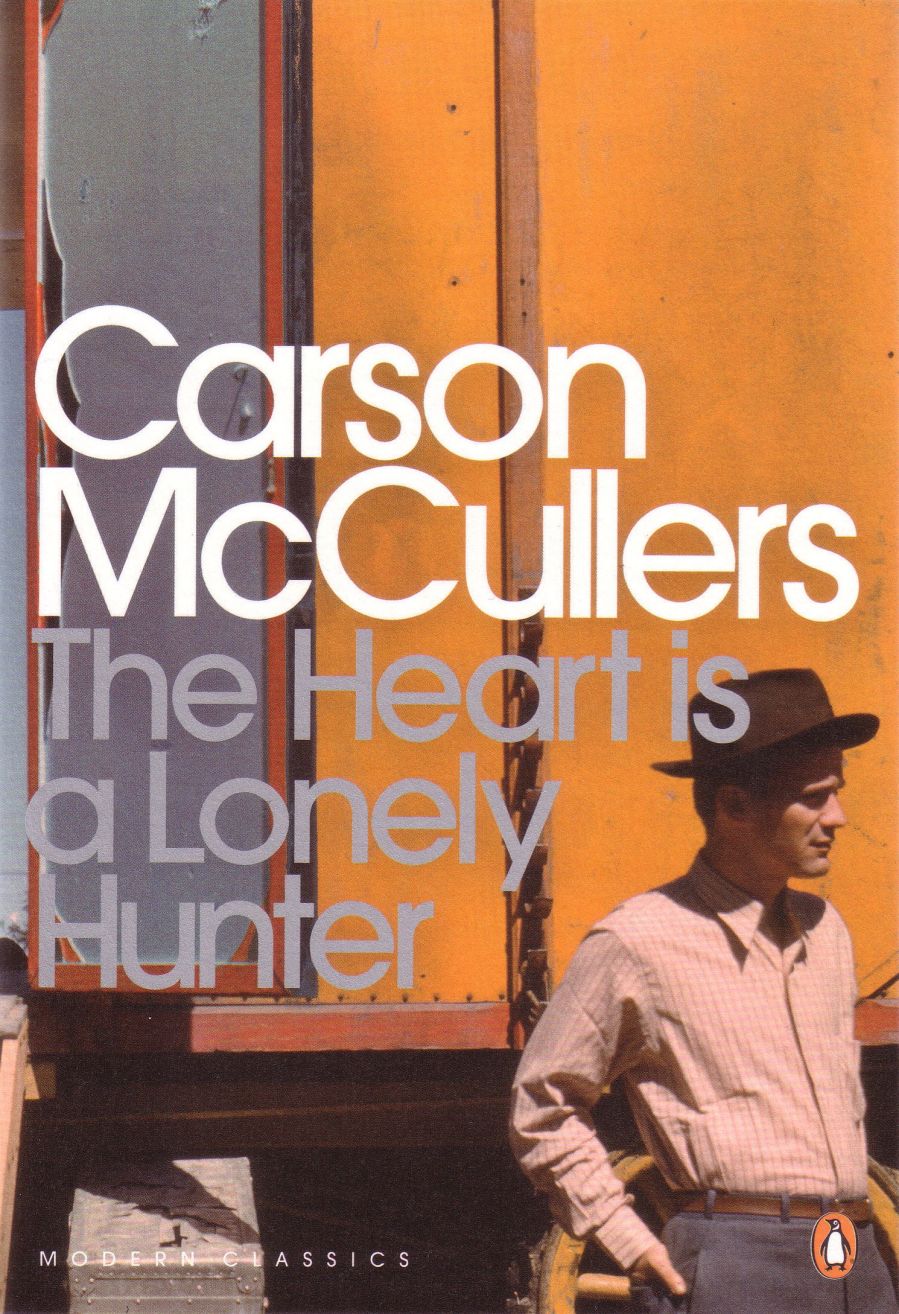The Heart is a Lonely Hunter, Carson McCullers

When this was chosen for my book club, I thought I had already read it. I even thought I owned it, and spent half a day going through my boxes of books, boxed up from when we moved a year ago. The Heart is a Lonely Hunter is one of those books you hear about at some point in your teens or early twenties. It has the cult appeal of Kerouac or Salinger, and you assume Carson’s a guy but then you find out she’s a girl when you see her cute too-short fringe, and envy her youthful insouciance. But it turned out I hadn’t read it, then I found out she wrote it at 23 and envied her even more. Then I did read it, and I’m so glad I have. In truth, it’s a miserable tale, and McCullers’ life seems to have been full of pain too, but both are brilliant.
There are two mutes in a middling mill town in the deep south, and when Spiros Antonapoulos is taken away to live in an institution his friend, John Singer, is bereft. Despite his own sorrow, he attracts an assortment of characters from the town who seek his friendship and wisdom. And despite his deafness, it turns out he’s an expert listener, and he always makes himself available to listen to his friends.
These characters, who include Mick the confused teenage girl, Biff the bar owner, the drunk Jake Blount and black civil rights pioneer Doctor Copeland, are all outsiders: politically, racially, through gender, age and social station. They suffer the ills endemic to America. And even when they come close to conforming, as Mick does when she dresses up and holds a grown up party, things go wrong and they end up worse off than they were before.
The misery of the story was intensified for me because it feels like the whole book, with all of its ills and injustices, could be contemporary. The thread of hopelessness throughout the tale reminds me of Rohinton Mistry’s A Fine Balance, which is set in a partitioning India where poor people just can’t catch a break. I think it’s an oversight to dismiss this tale as belonging only and specifically to the American South. It’s described as of the Southern Gothic oeuvre, and certainly there are cultural details which place the story exactly where McCullers sets it, historically and politically but also culturally, because it’s full of music and movies, but the struggles are universal. It was written in 1938, on the brink of Europe’s descent into war and fascism, at a time when America was poor but hopeful, Communists were much hated, but nobody knew what was coming next.
Now we do know what came next, and what has come round again, and what’s always looming around the corner: punishment, often bloody and violent, always economic, for anyone who’s different, but we’ve also found far more ways to share views of solidarity than Singer and his merry men had, in large part due to technology, which might give us hope.